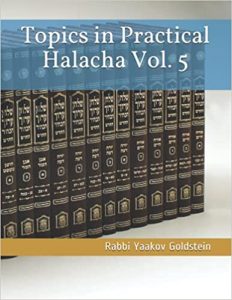*As an Amazon Associate I earn from qualifying purchases.
Onas Devarim-Hurting another with words:[1]
The law:[2]
Just as there is a [Biblical] prohibition against oppressing another in business [by cheating him] so too there is a [Biblical] prohibition against oppressing [i.e. insulting, offending, etc] someone with words.[3] [This prohibition is listed as part of the 365 negative commands.[4] The reason for this prohibition is because G-d desires that people live harmoniously, and peacefully.[5] One who transgressed the above prohibition and offended his friend with words, transgresses a negative command.[6] Nonetheless, he does not receive lashes as it is a transgression without action.[7]]
The severity: Oppressing another with words is even worse than oppressing him monetarily [through cheating him].[8] A victim of verbal insult who cries to Hashem is immediately answered.[9]
| Think before your speak…and type-Abstaining from offensive statements in social media interaction: Based on the above prohibition, one must be very careful when speaking with another person that he does not express any words that he assesses that can offend or insult the other person. This especially applies in social media when people often don’t feel the intimidation that would normally be present when someone is in front of you, and certainly when one can hide behind anonymous names. One must be very careful that his comments are worded properly so they don’t offend someone, and must be especially careful not to outright attack someone in his comments. It is most puzzling and upsetting to see that there exists websites that are run by religious Jews which allow users to comment with offensive and derogatory remarks, and most certainly they and the commentators transgress the above prohibition, or at least the prohibition of Lifnei Iver Lo Siten Michshol. Some suggestive guidelines for avoiding possibly offensive comments: 1. When in doubt do without: If you are unsure whether your comments will be taken offensively, then better avoid them all together, unless the matter is of necessity to bring up, in which case it is to be weighed carefully. You don’t have to respond and comment on every post, especially if it may come in the expense of transgressing a Biblical command. 2. Rethink your words several times before posting. 3. Avoid using targeting language such as “You,” and rather simply state your point in the affirmative. For example, rather than saying “You are wrong”; “It seems evident you don’t know how to read.”; “You are making things up”; keep out the “you” and simply state your point such as “I believe the correct approach is” or “It is clear from the article that.” These subtle but necessary changes in one’s comment can make a world of a difference to the person who it was intended for. It encourages civil dialogue, and avoids battles of the egos. |
___________________________________________________________________
[1] See Encyclopedia Talmudit Erech Onas Devarim p. 344
[2] Admur Hilchos Onah 27; Michaber C.M. 228:1; Bava Metzia 58b
[3] Admur ibid; Michaber ibid; Mishneh Bava Metzia 58b
The reason: As the verse [Vayikra 25:17] states “Velo Sonu Ish Es Amiso Vayareisa Meielokecha”, this verse refers to oppressive words. [Admur ibid; See Smeh 228:1; Bava Metzai ibid]
[4] Sefer Hamitzvos of Rambam Mitzvah L.S. 251; Chinuch Mitzvah 338; Semag Lavin 171
[5] Chinuch ibid
[6] Chinuch ibid
[7] Chinuch ibid
[8] Admur ibid; Michaber ibid; Rebbe Yochanon in Bava Metzia 58b
The reason: As when one cheats another he can pay him back and hence undo the damage done however oppressive words can never be equalized or be undone. Likewise, [one cannot compare] an oppression to one’s money to an oppression to one’s body. [Admur ibid; Michaber ibid; Rebbe Yochanon ibid]
[9] Admur ibid; Michaber ibid; Rambam Mechira 14:18
The reason: As he contains pain in his heart and is close to shedding tears. [Admur ibid; see Smeh 228:2; Rashi Bava Metzia 59b] And Chazal state that all the gates are closed except for the gate of verbal oppression. [Bava Metzia 59a-b and Rashi ibid]


 Donate
Donate

Leave A Comment?
You must be logged in to post a comment.